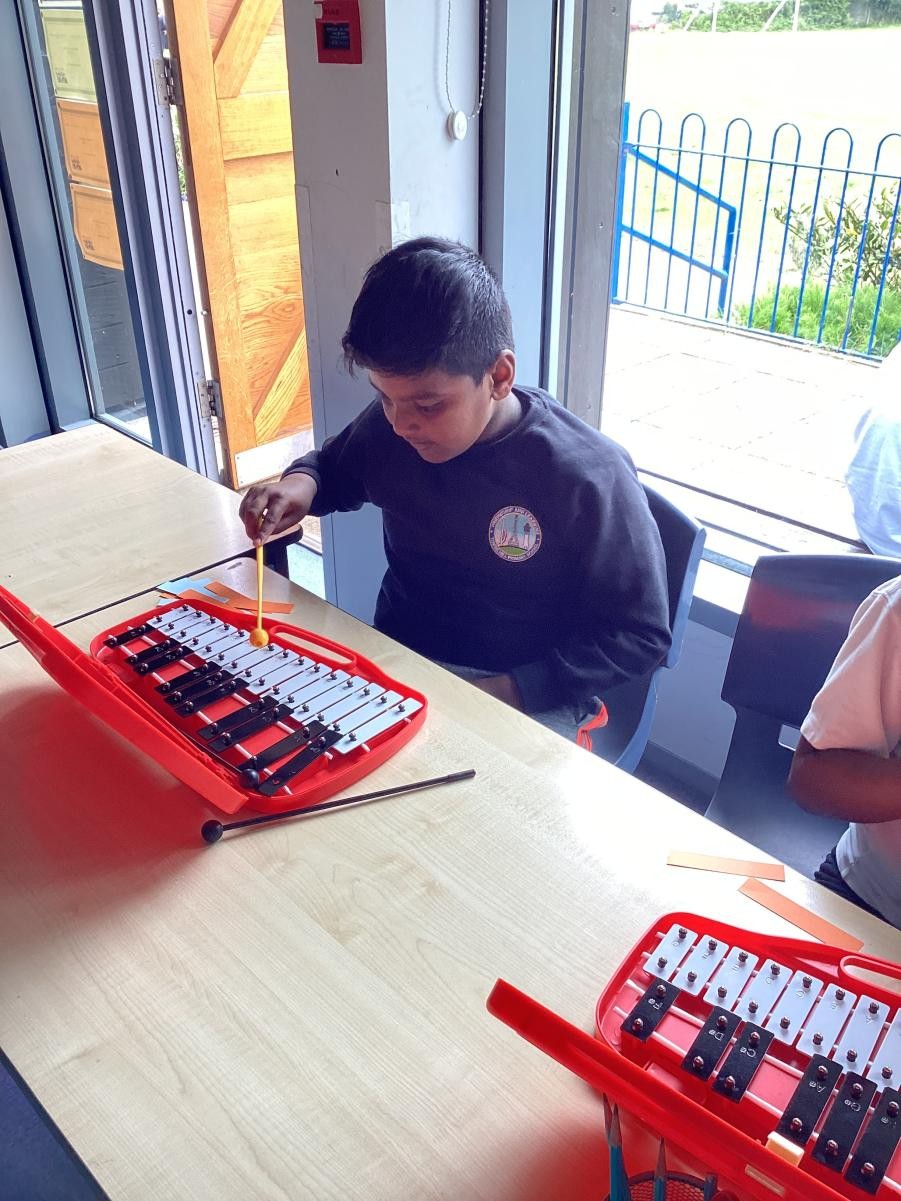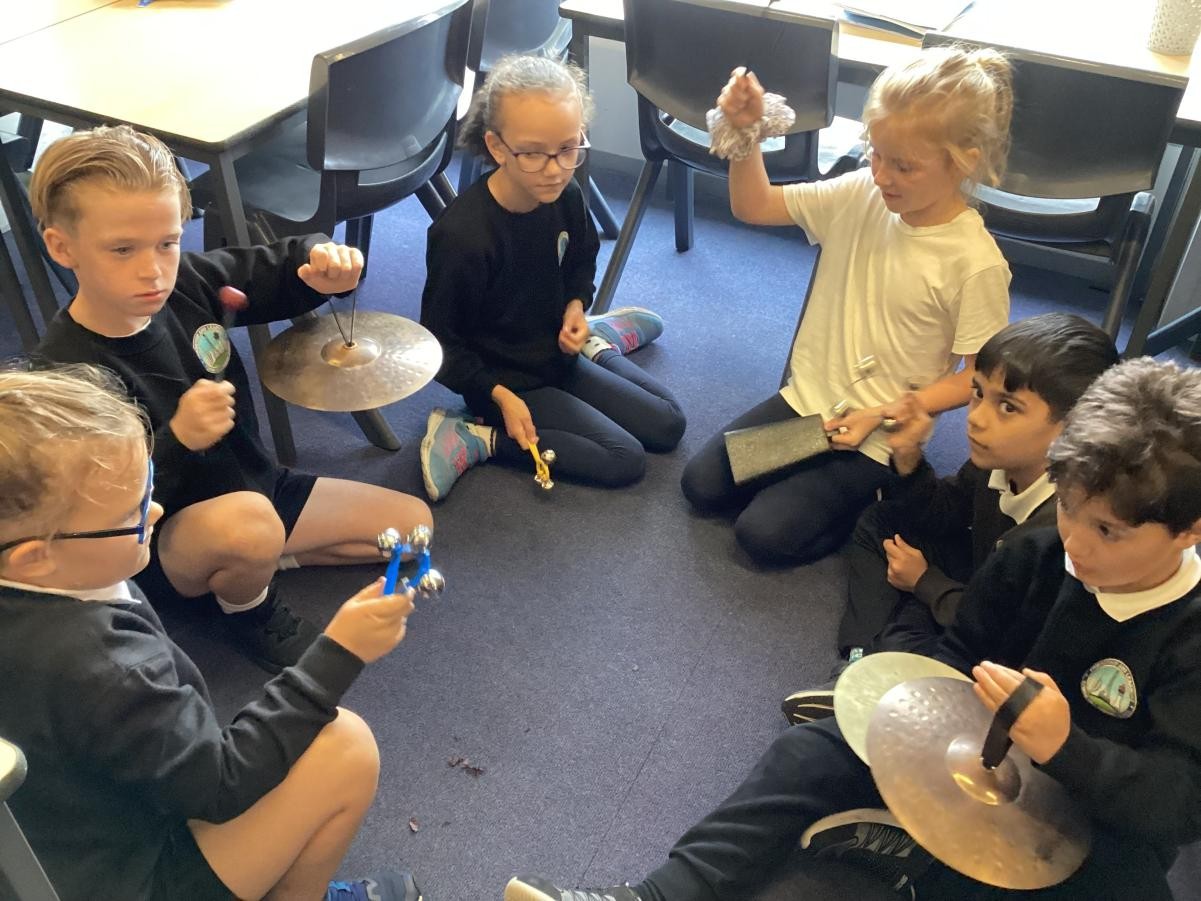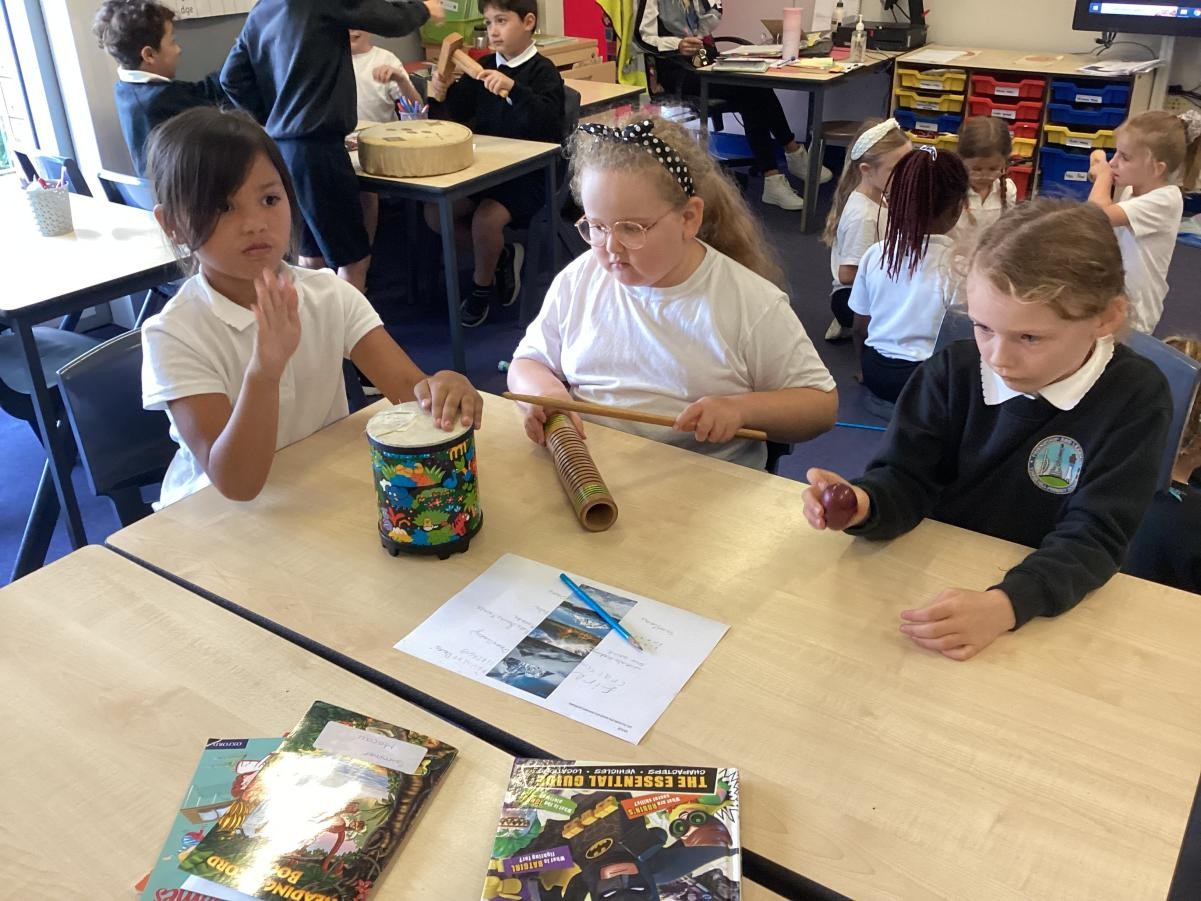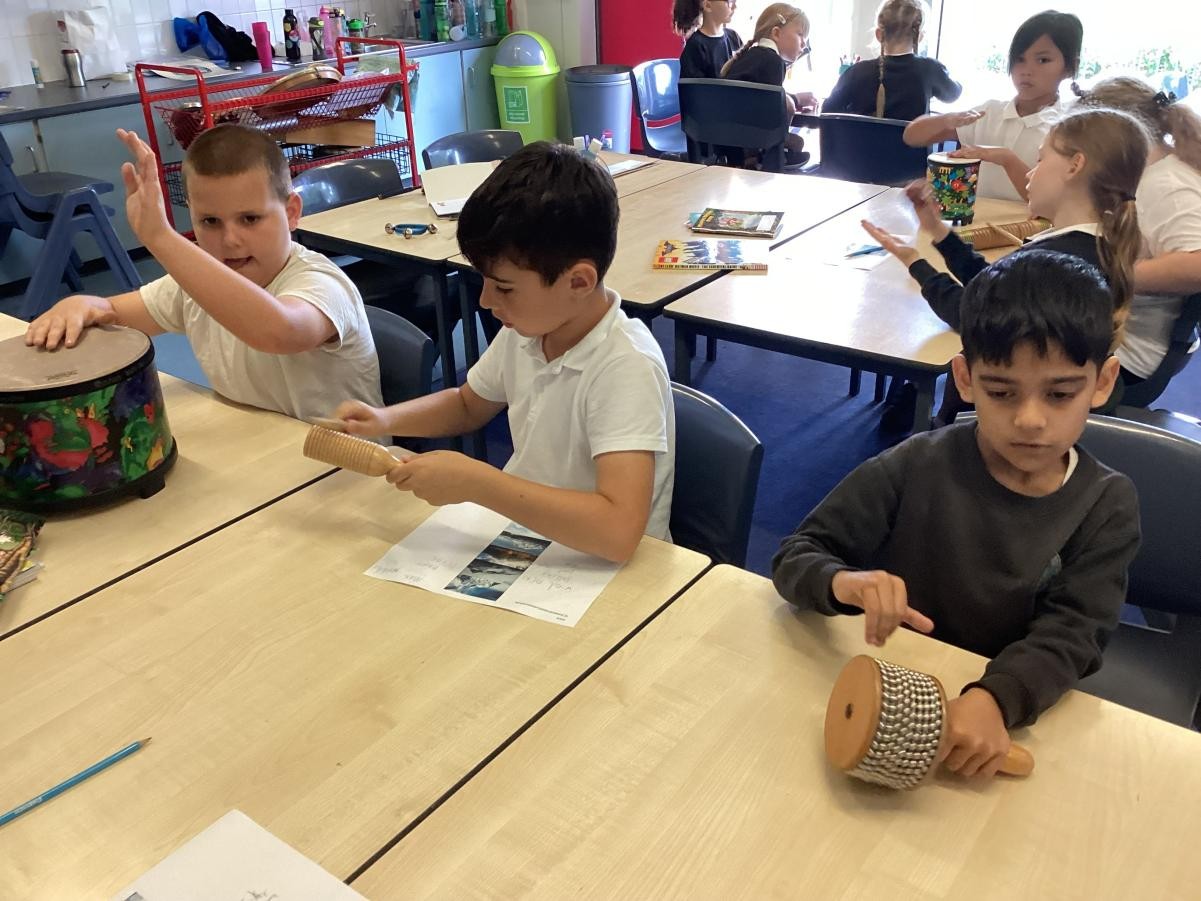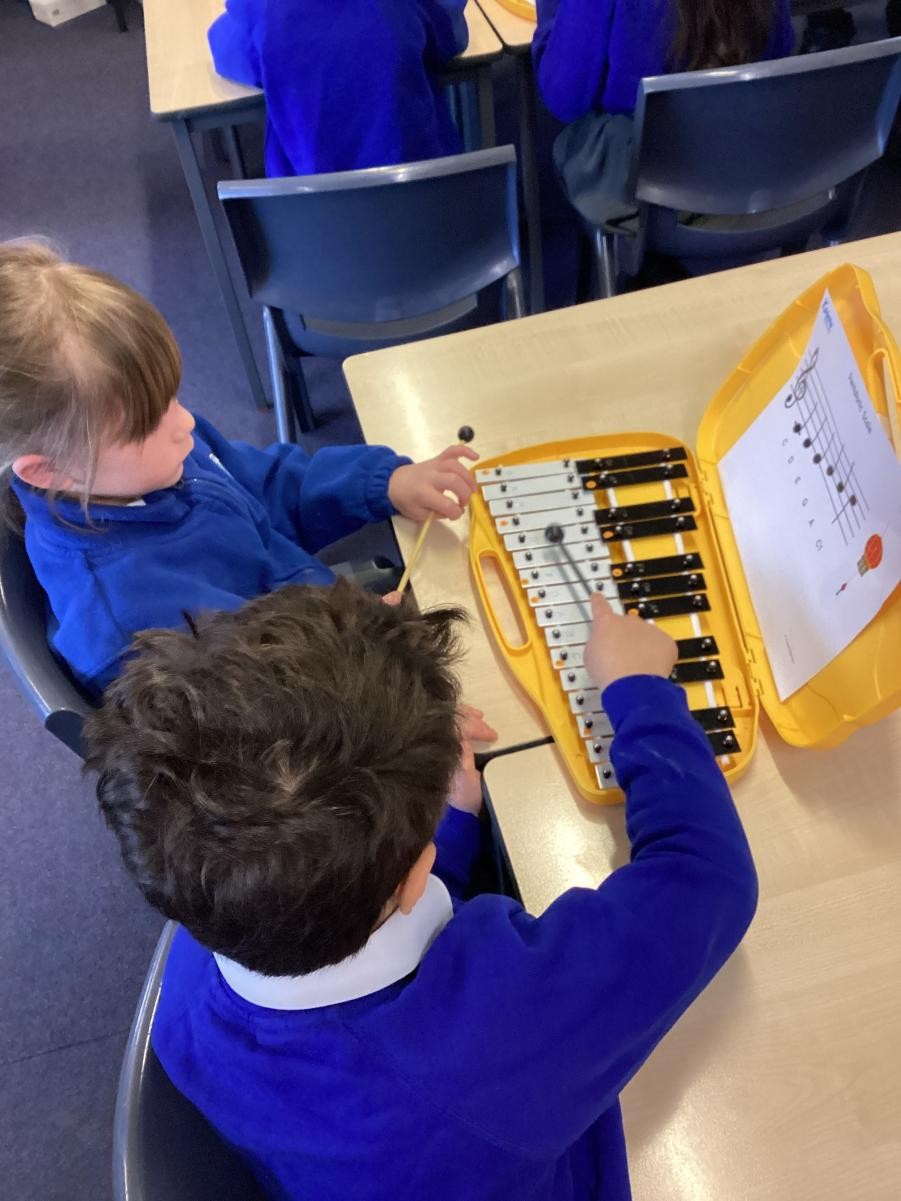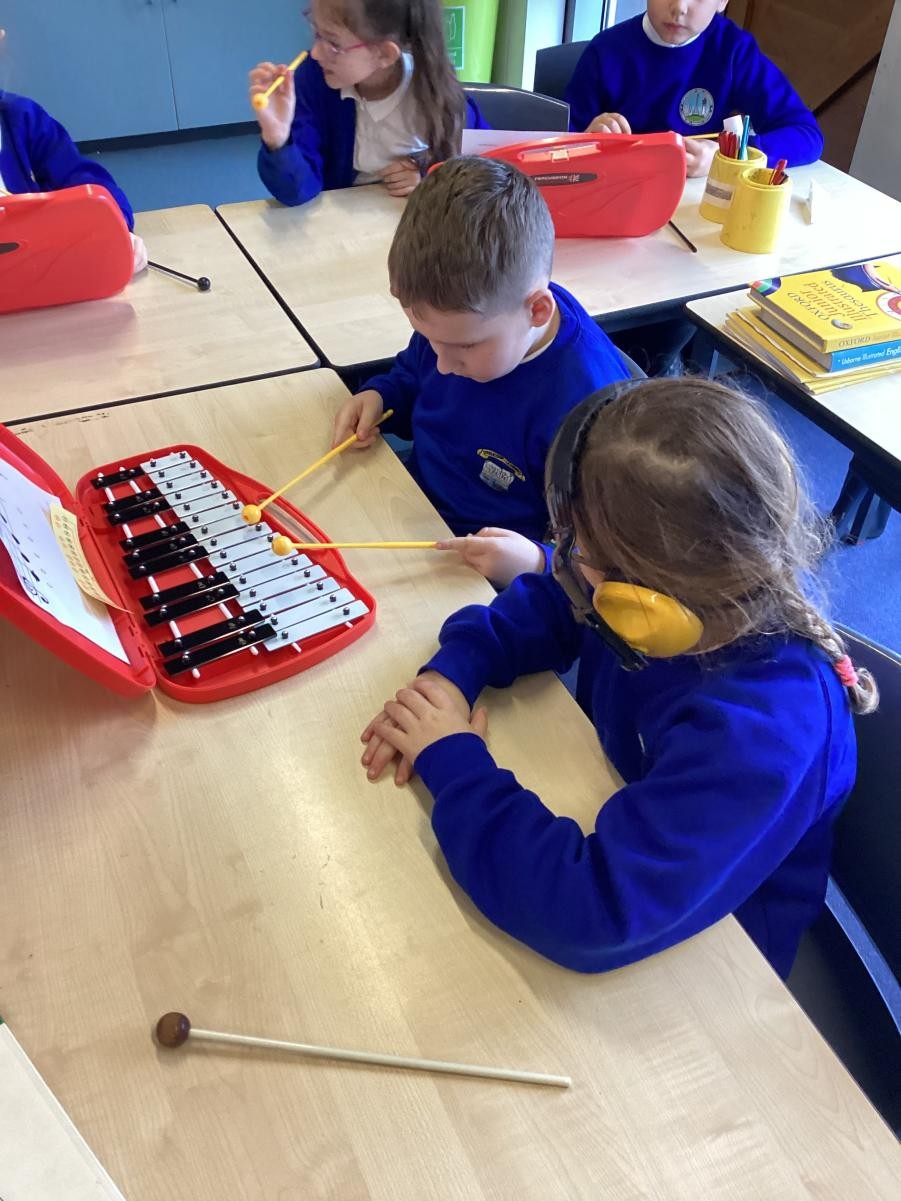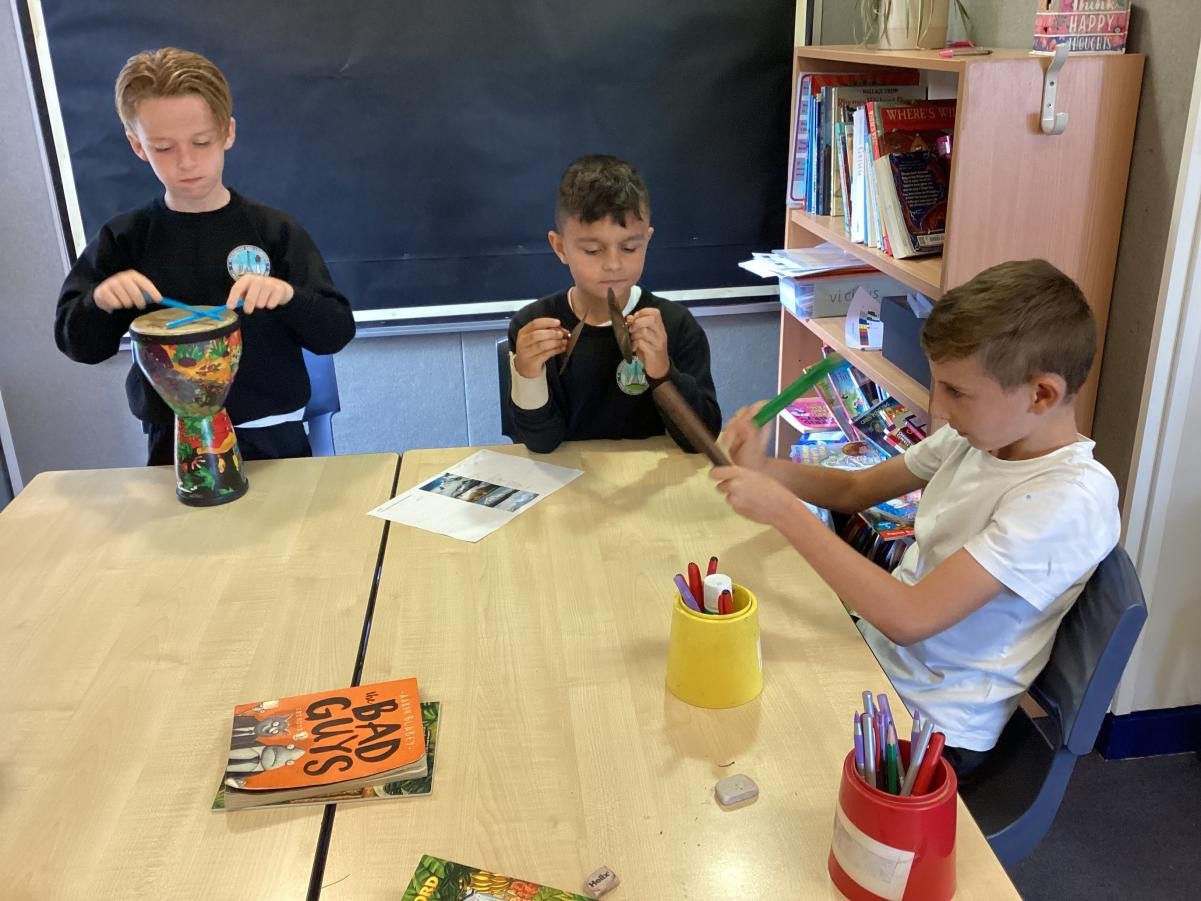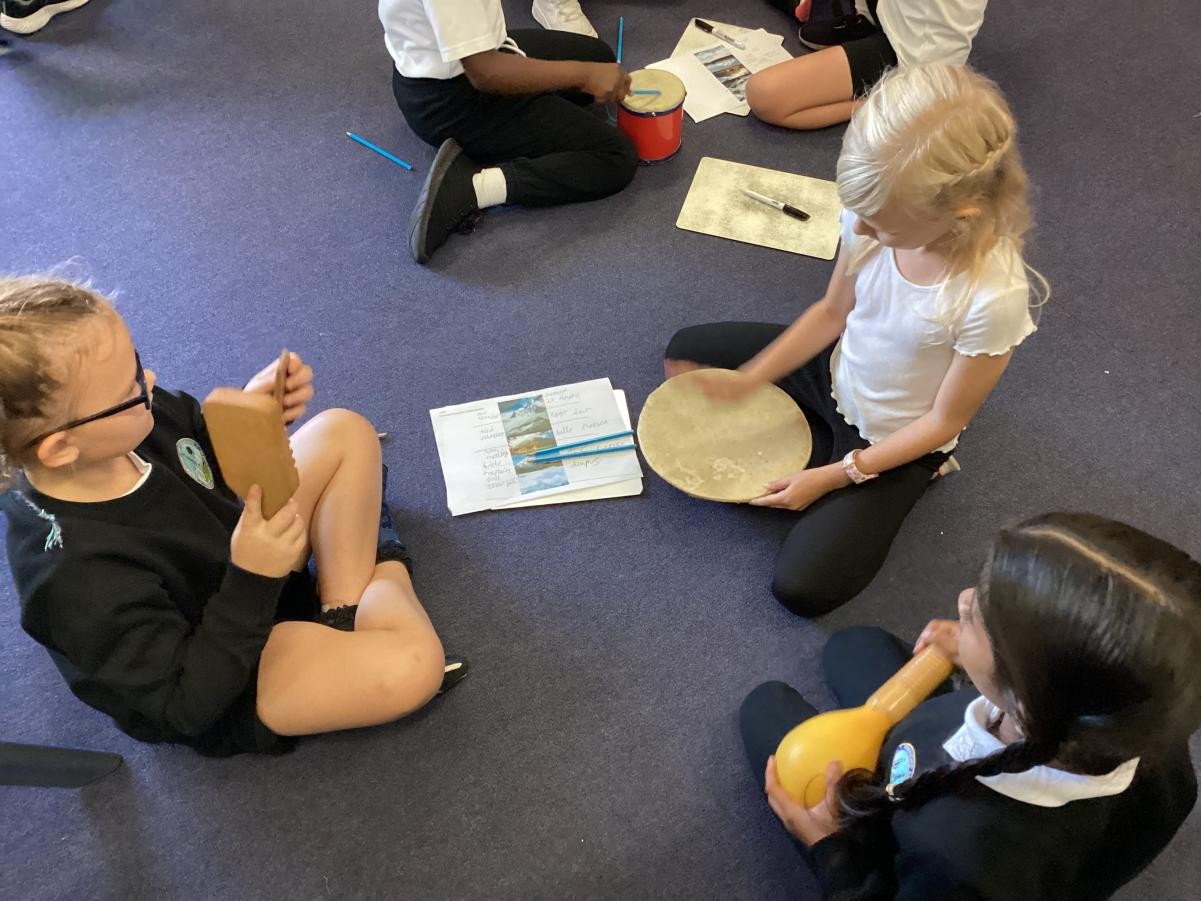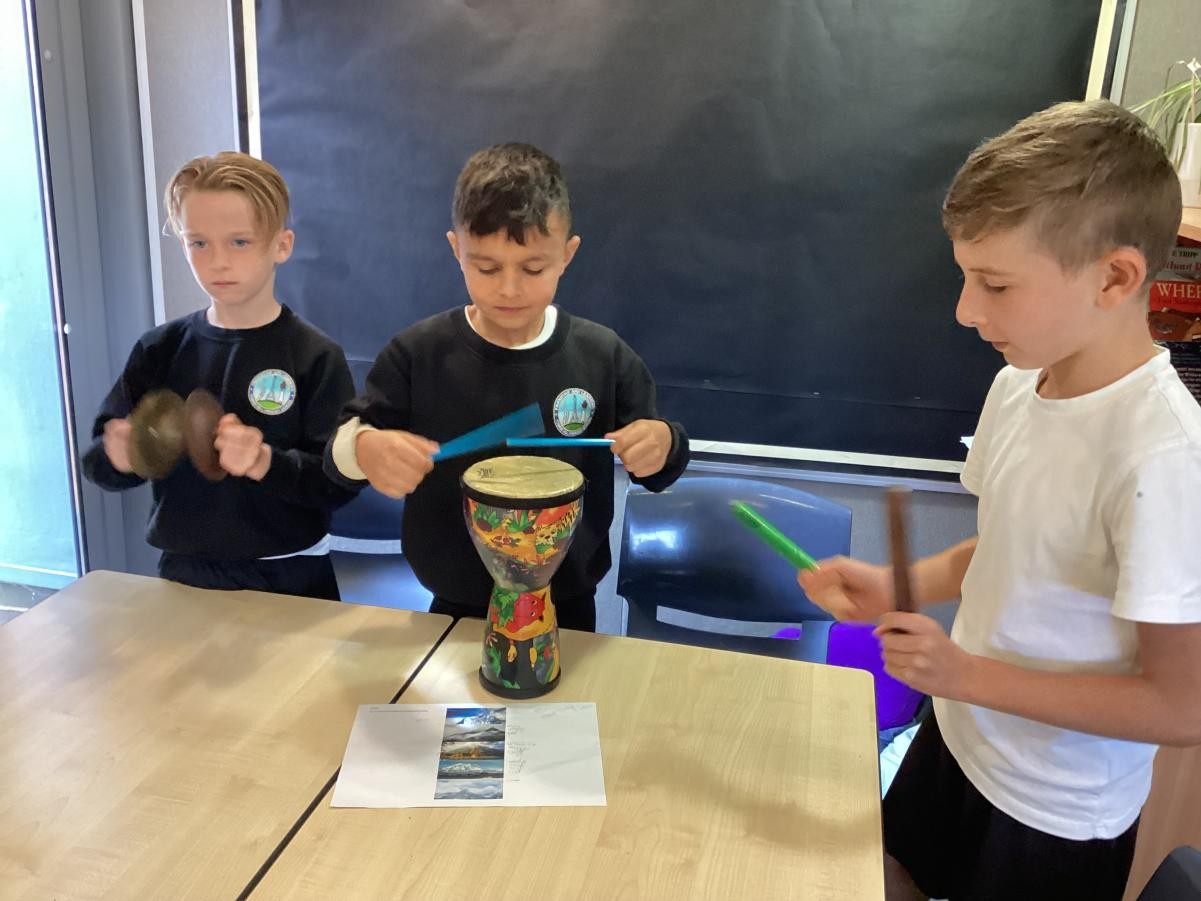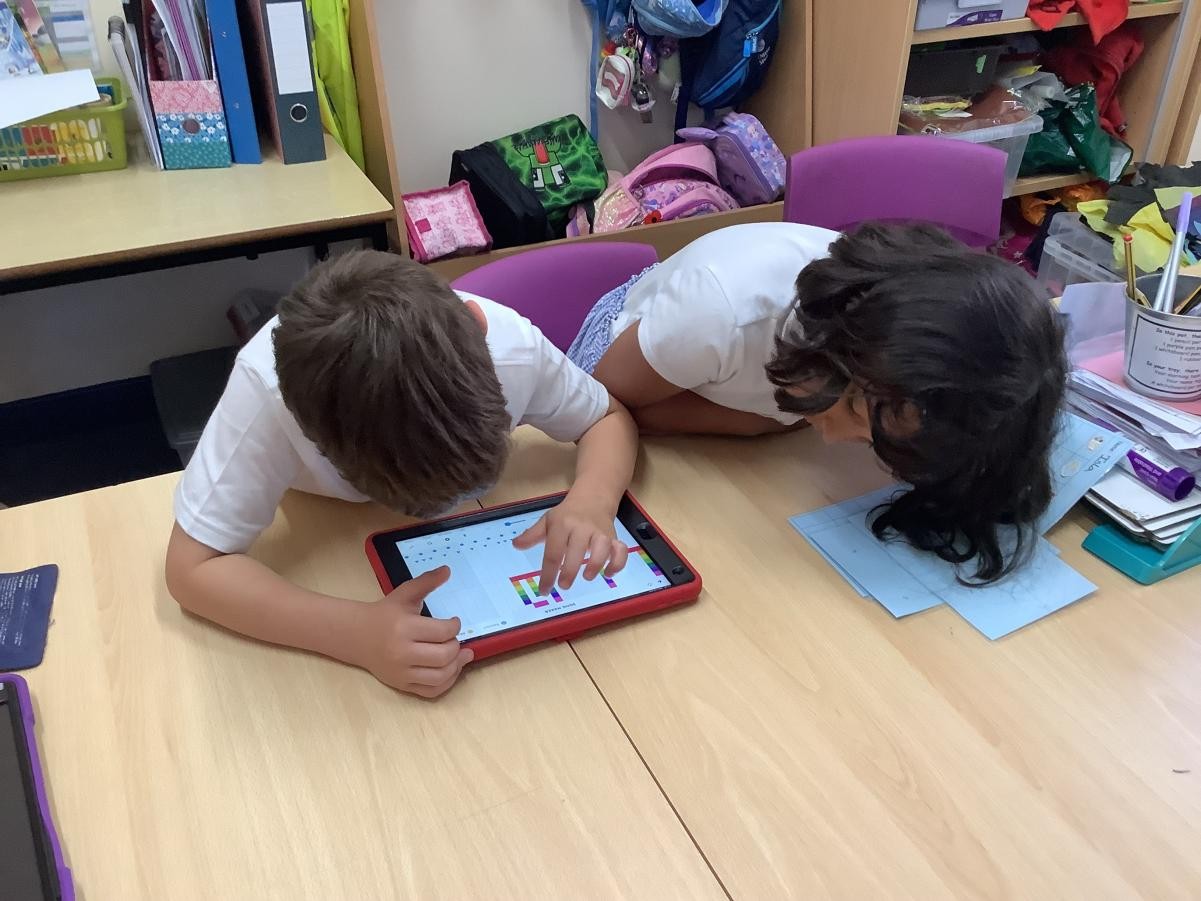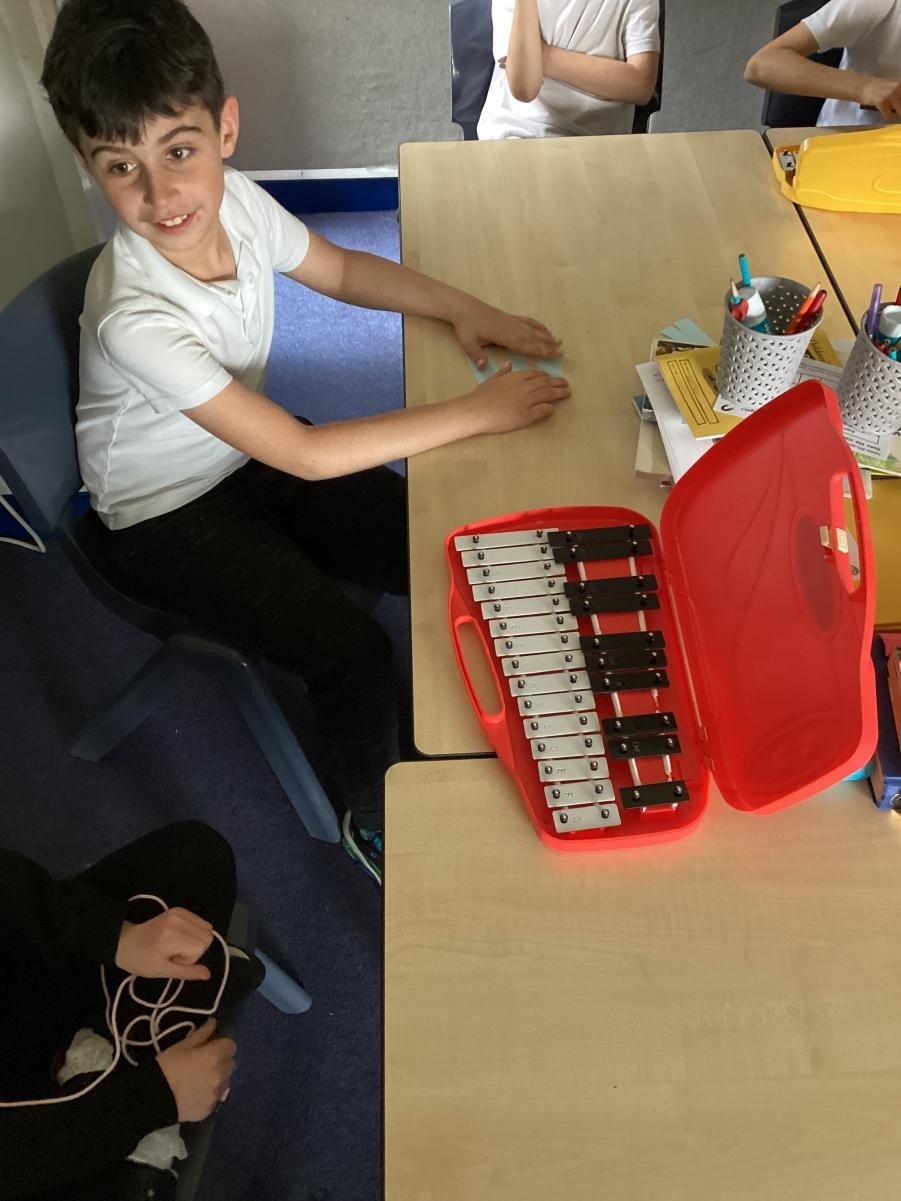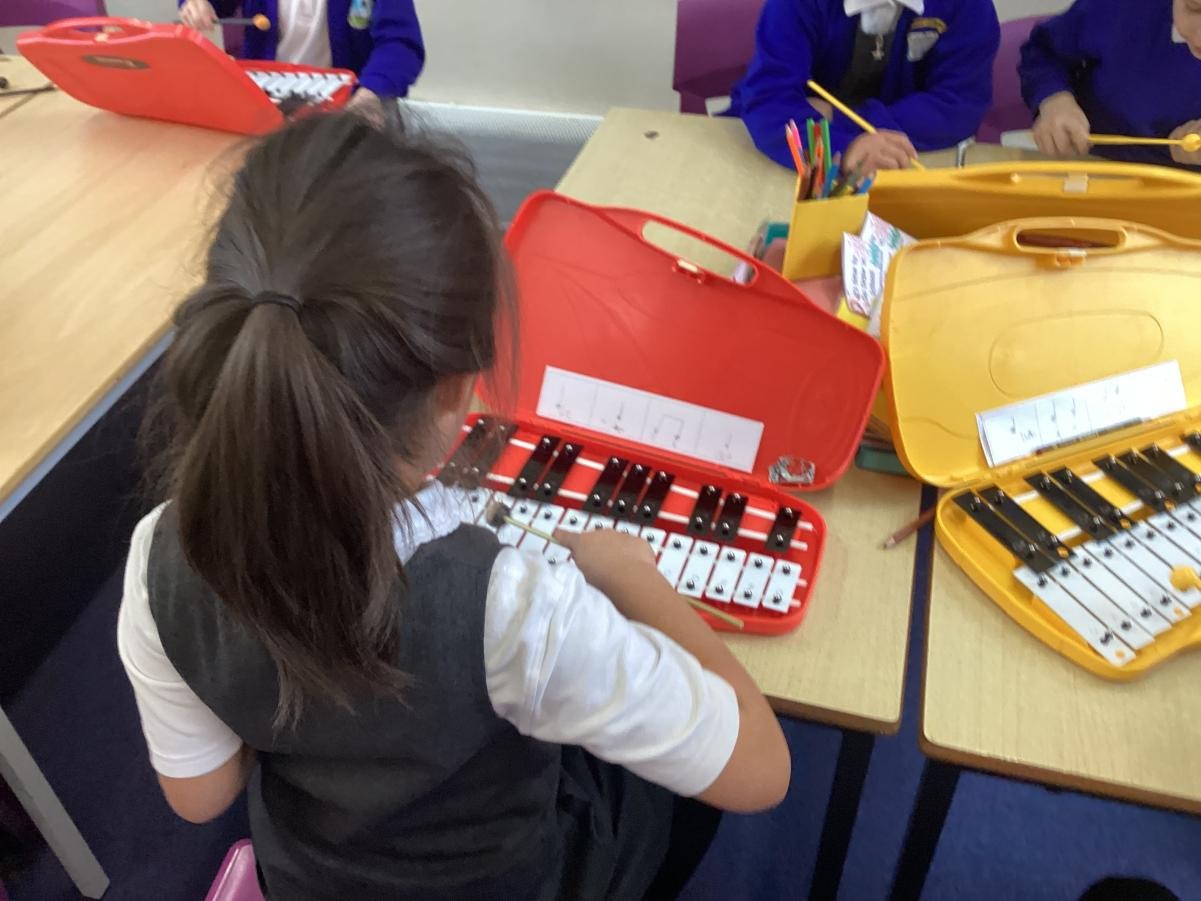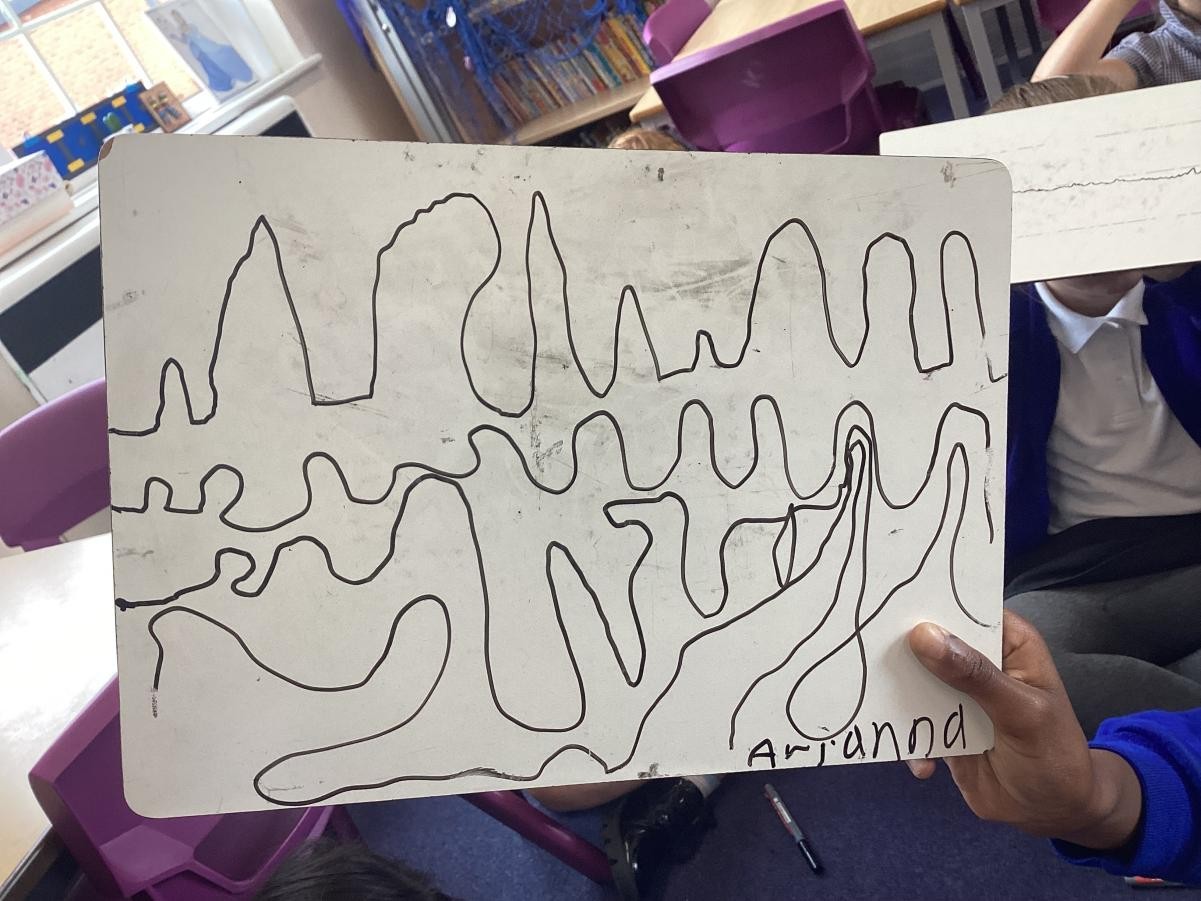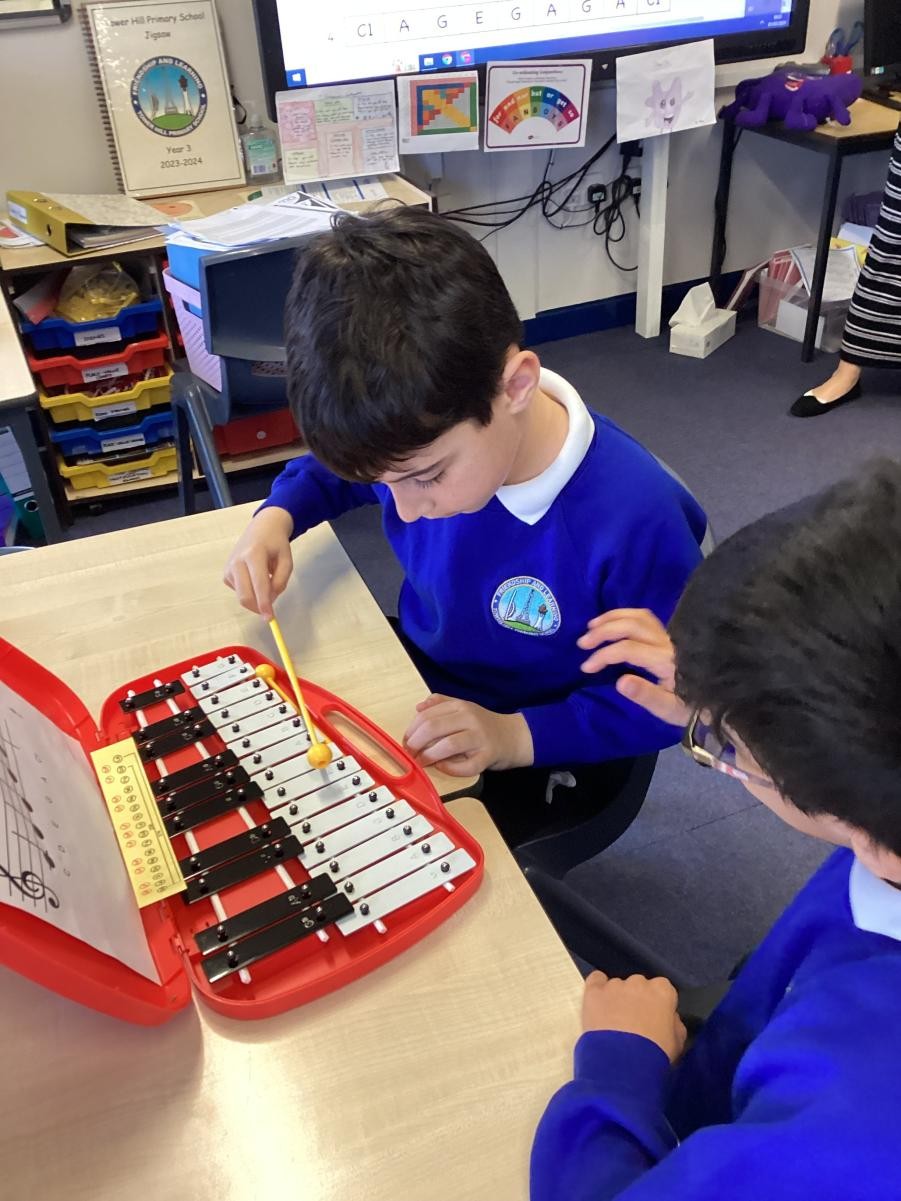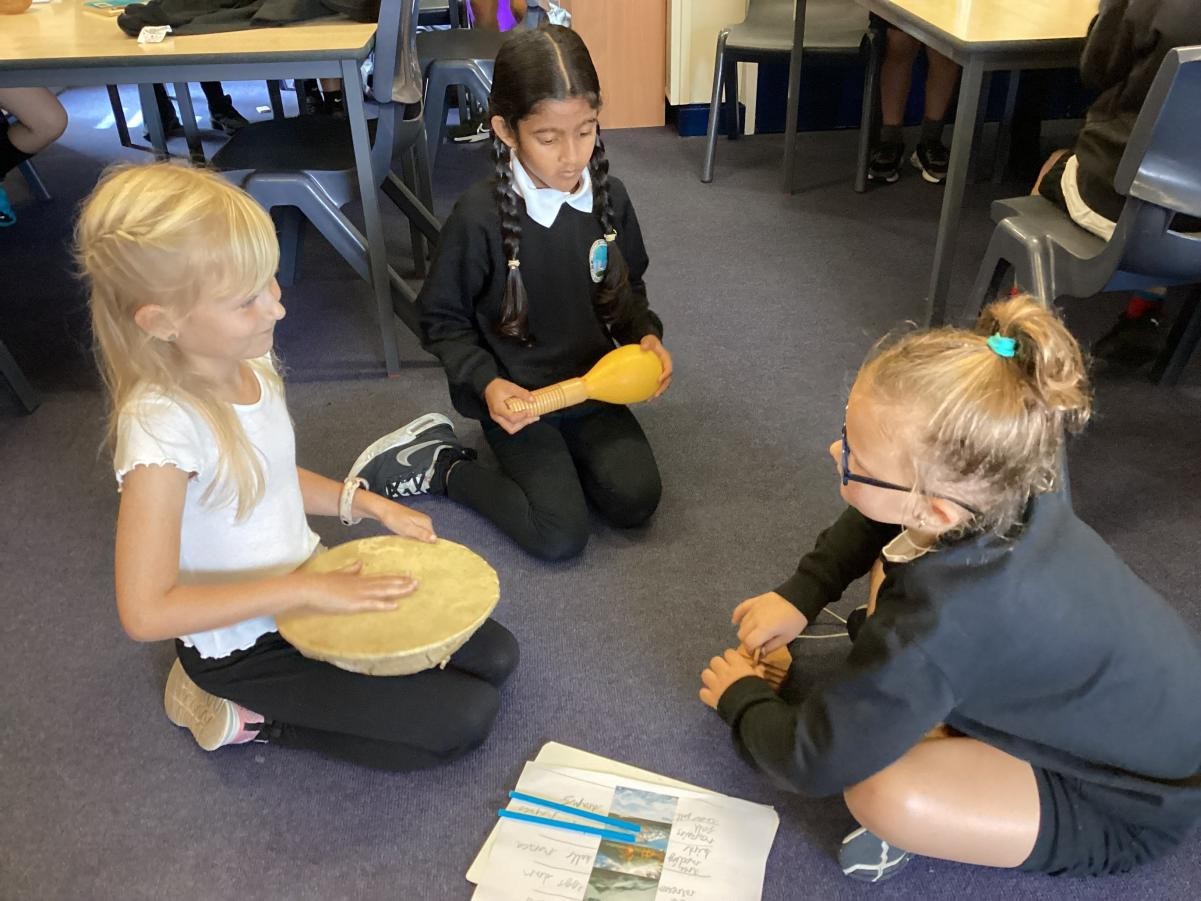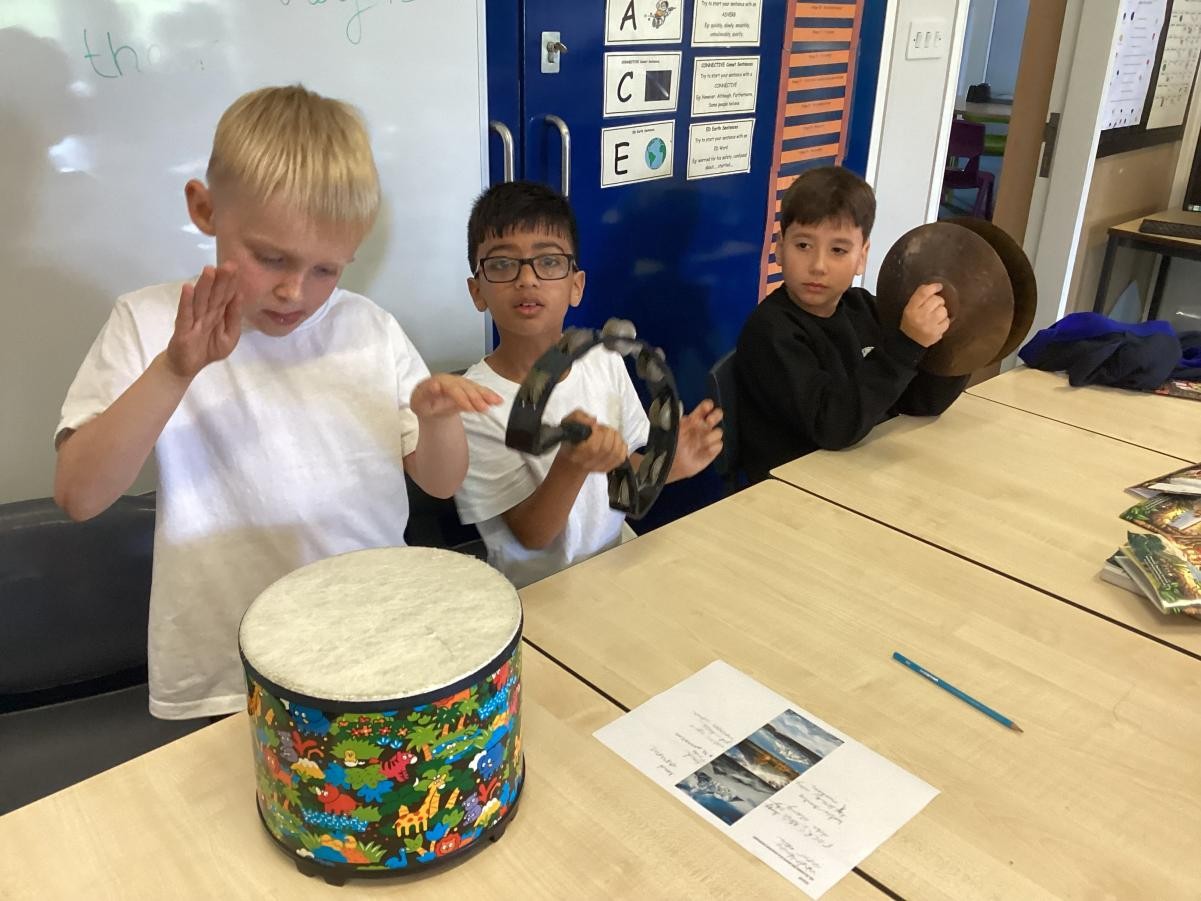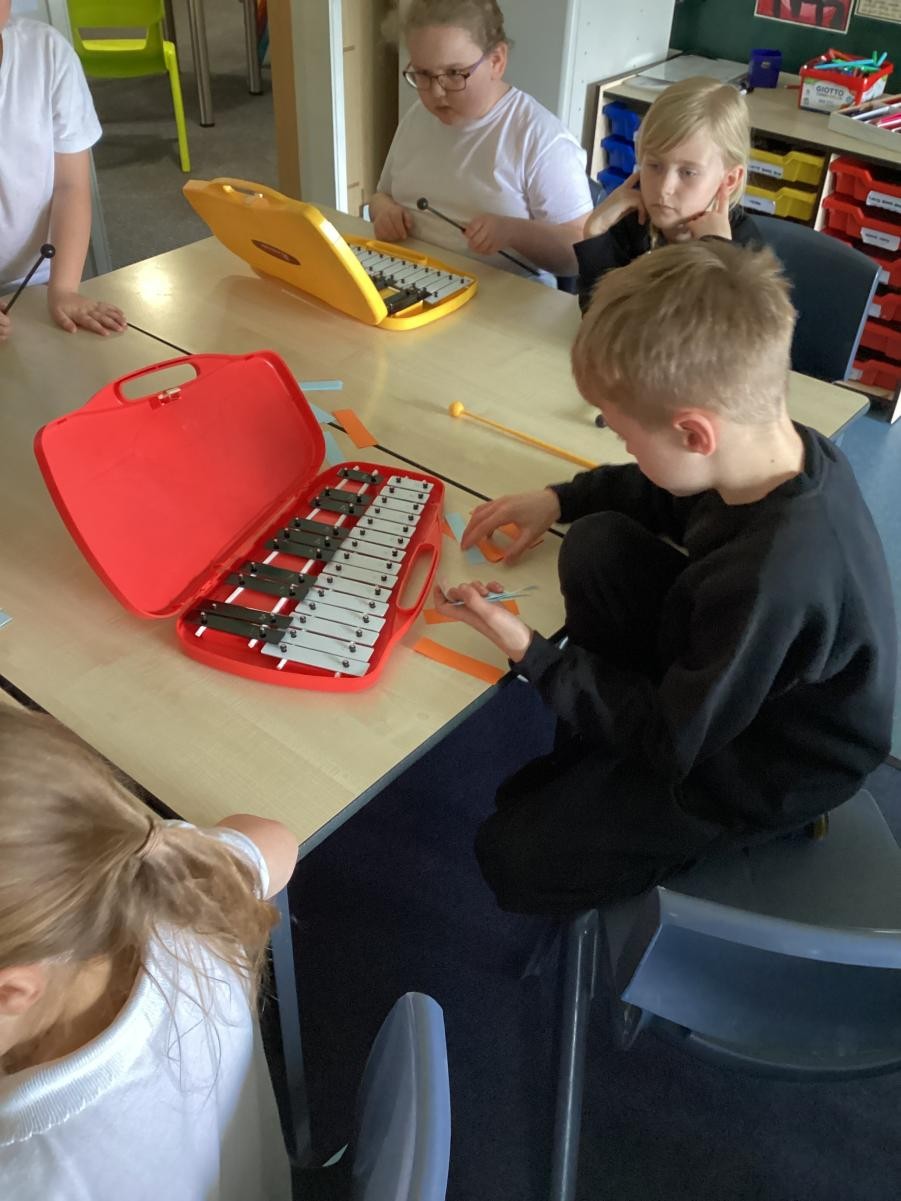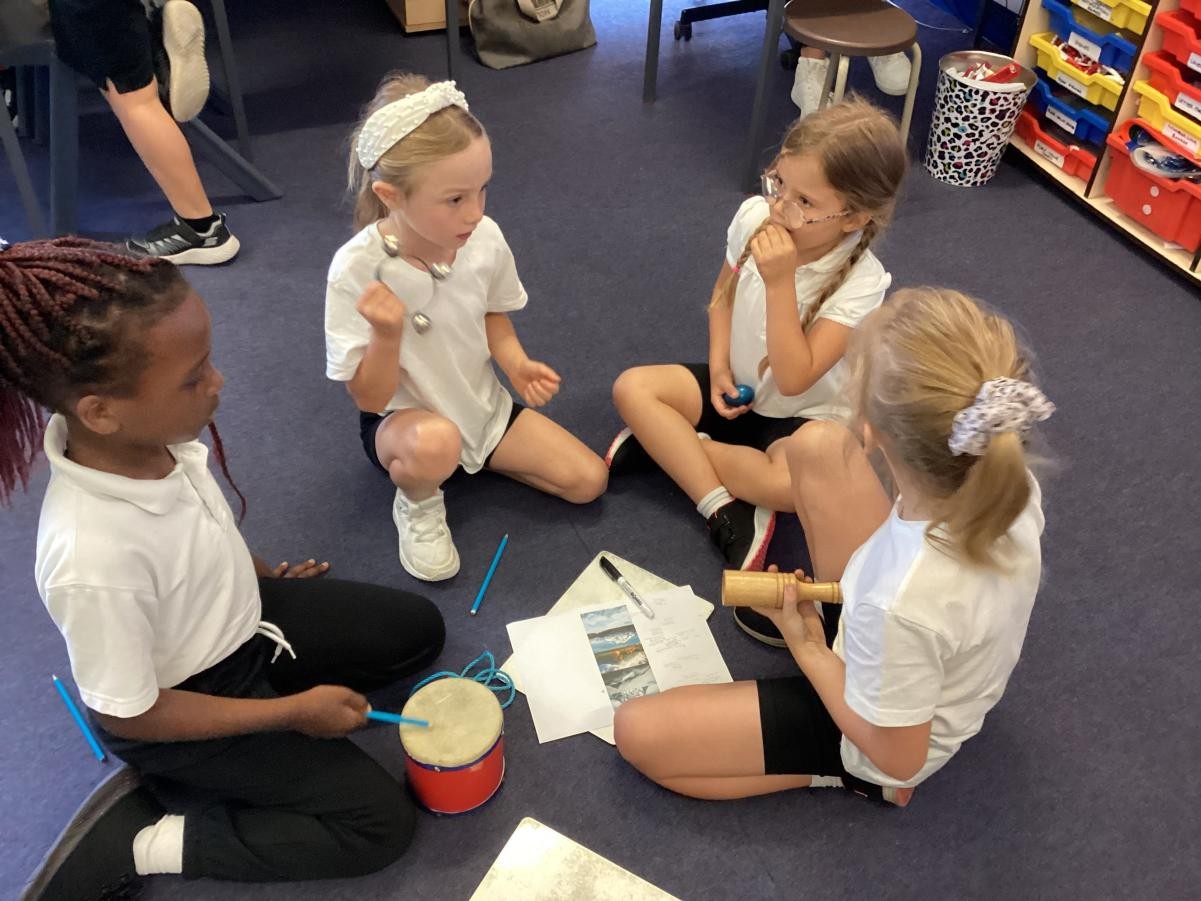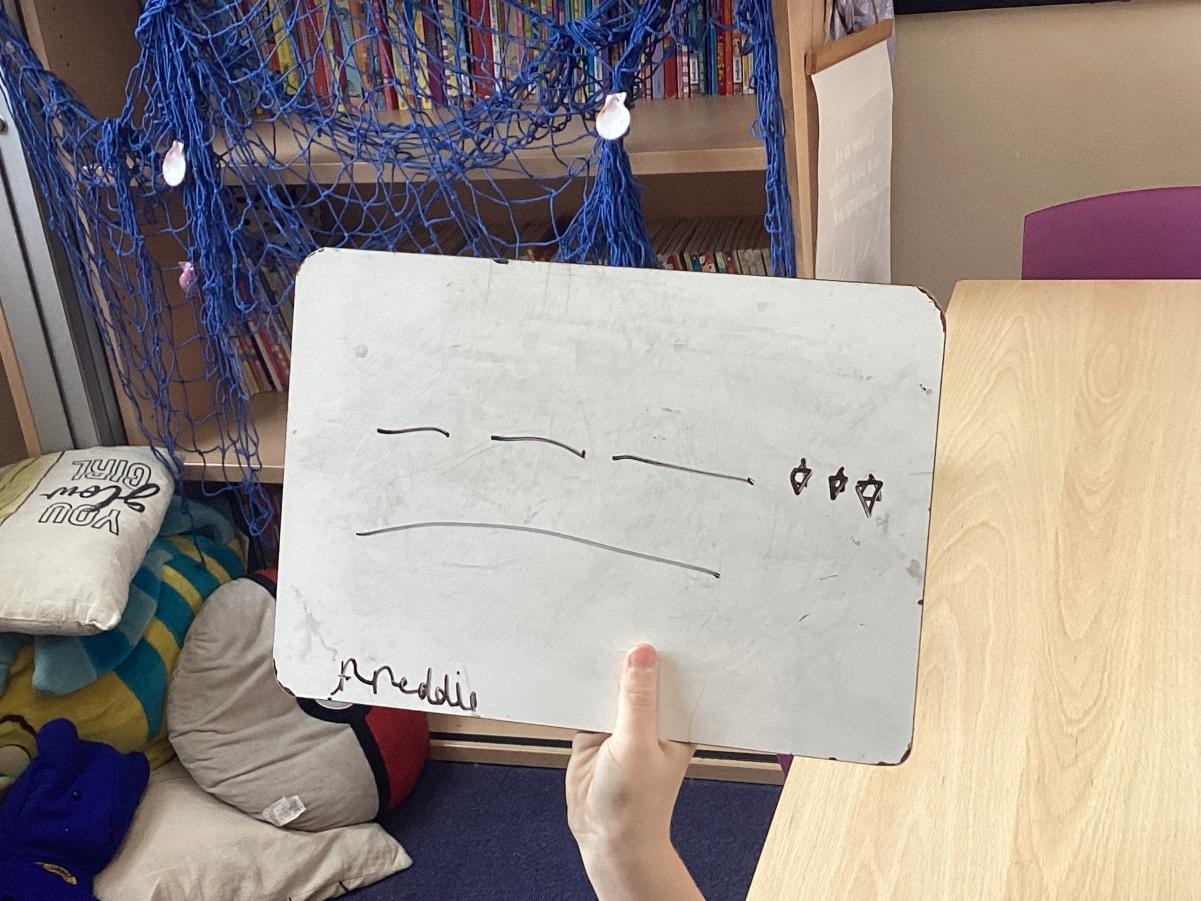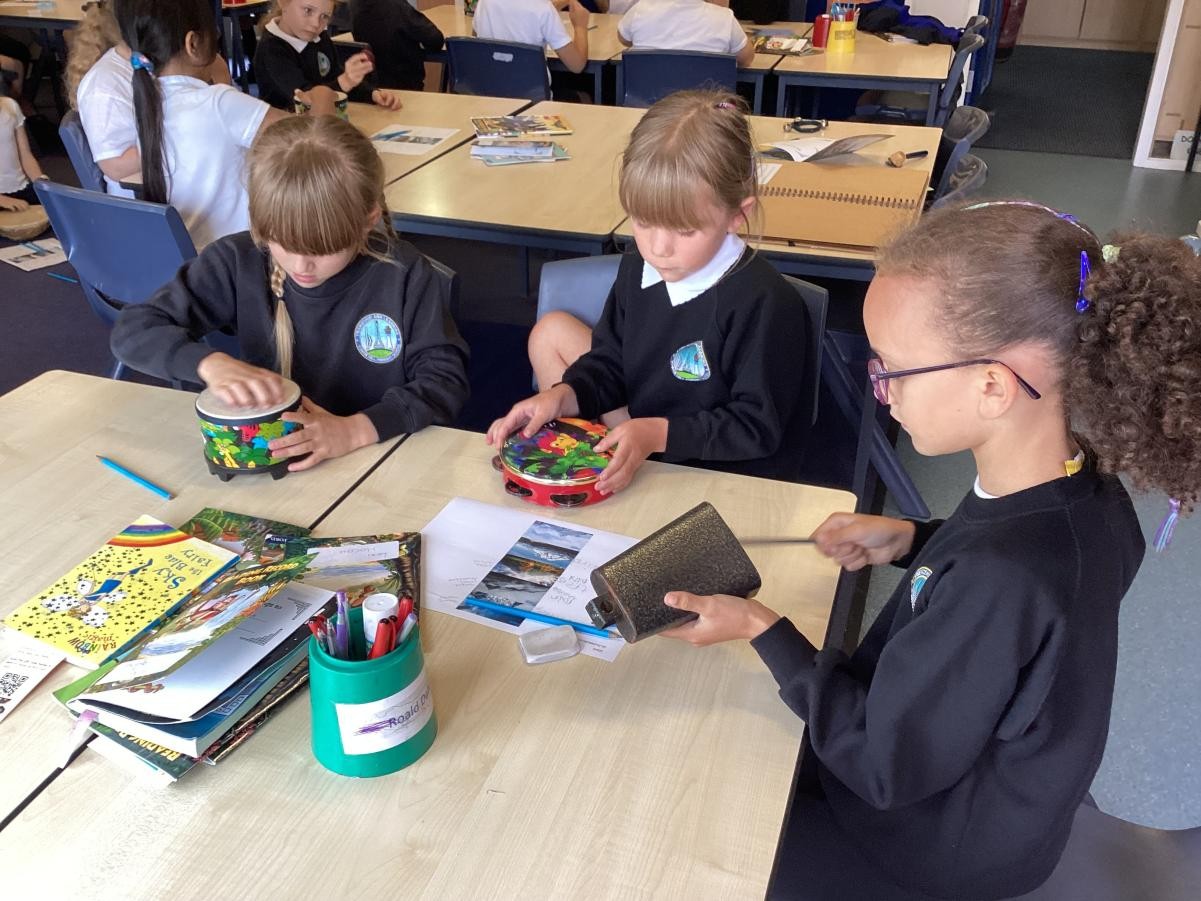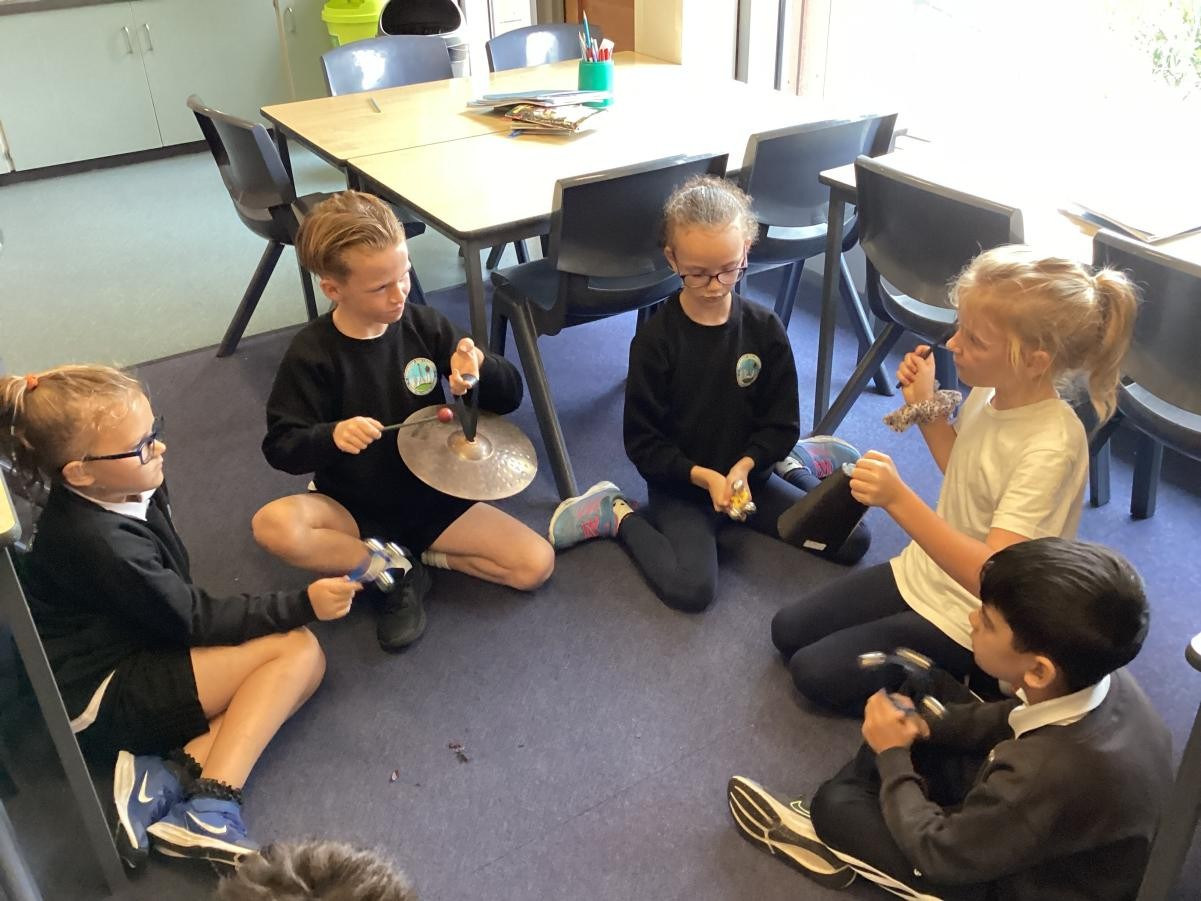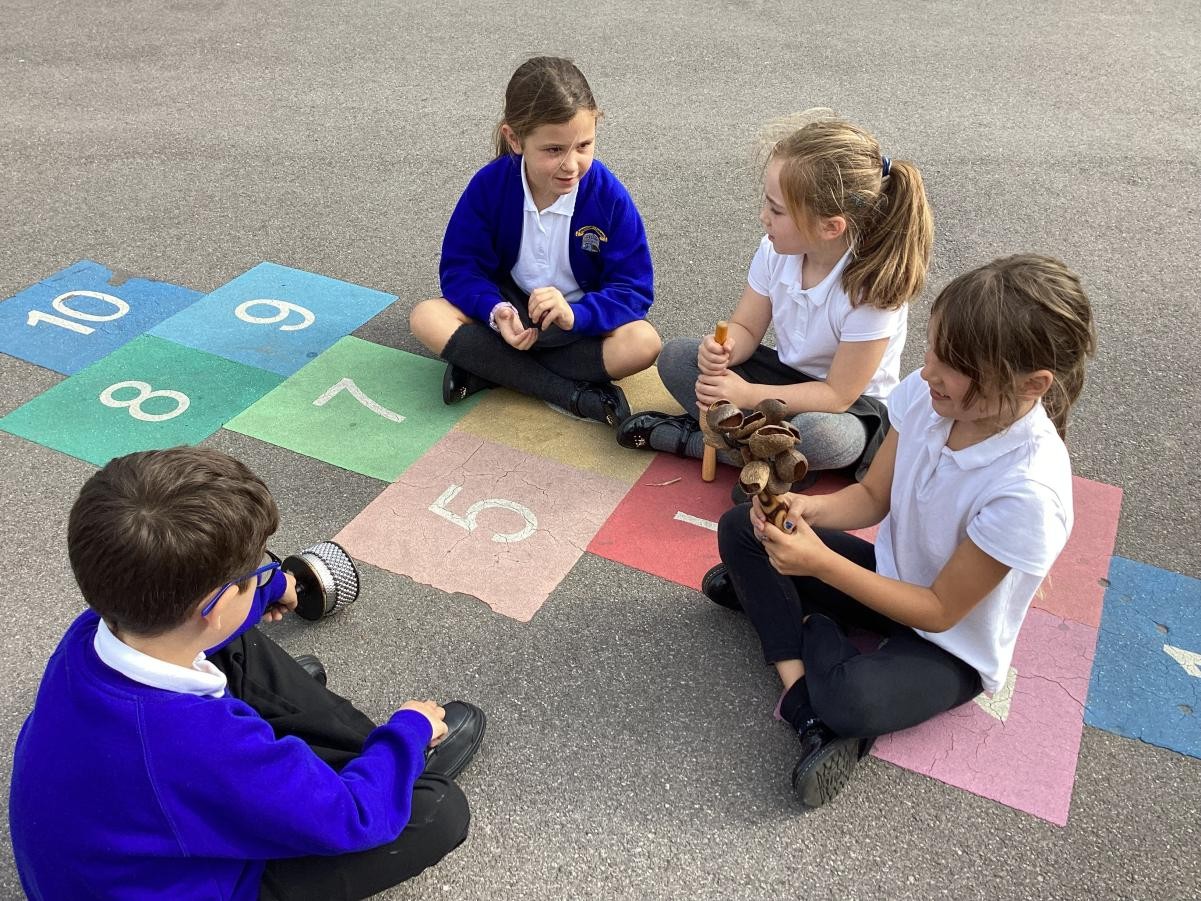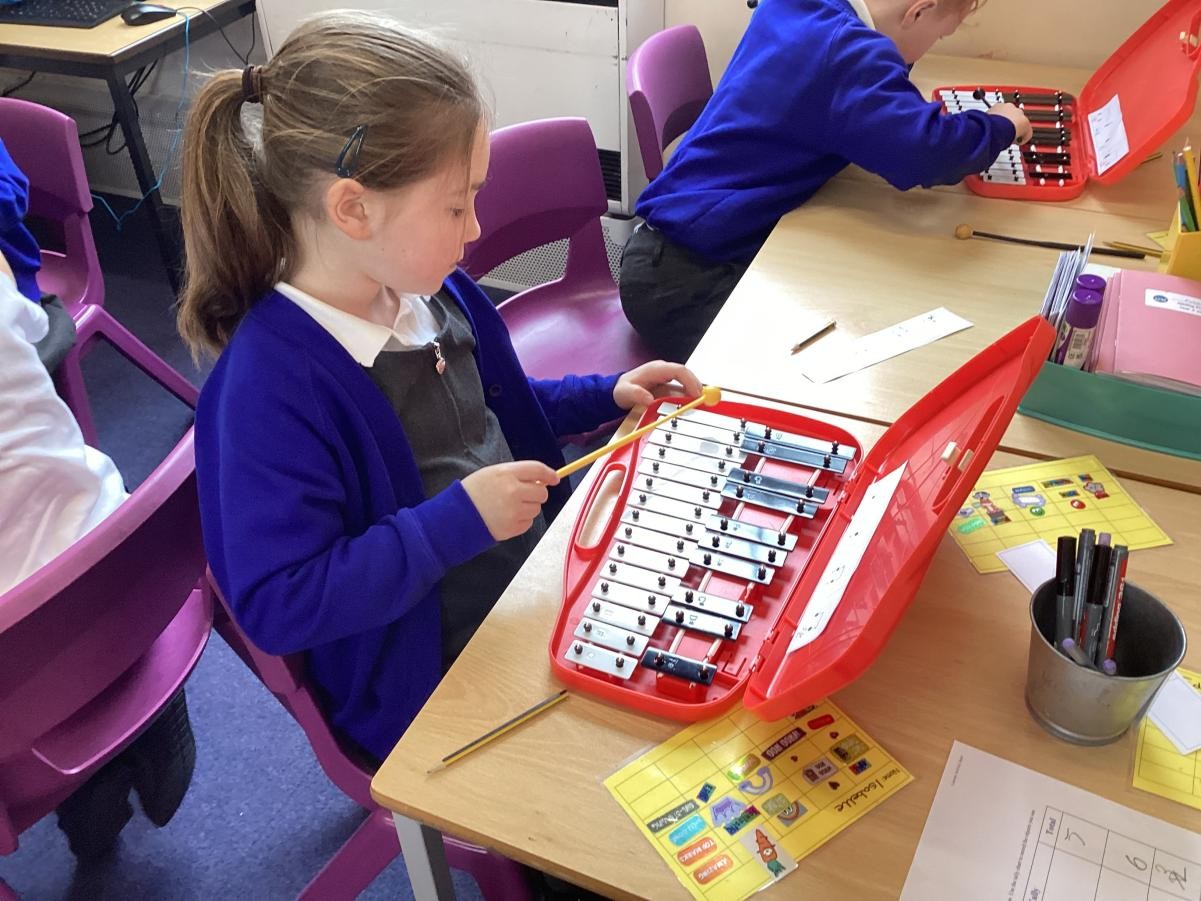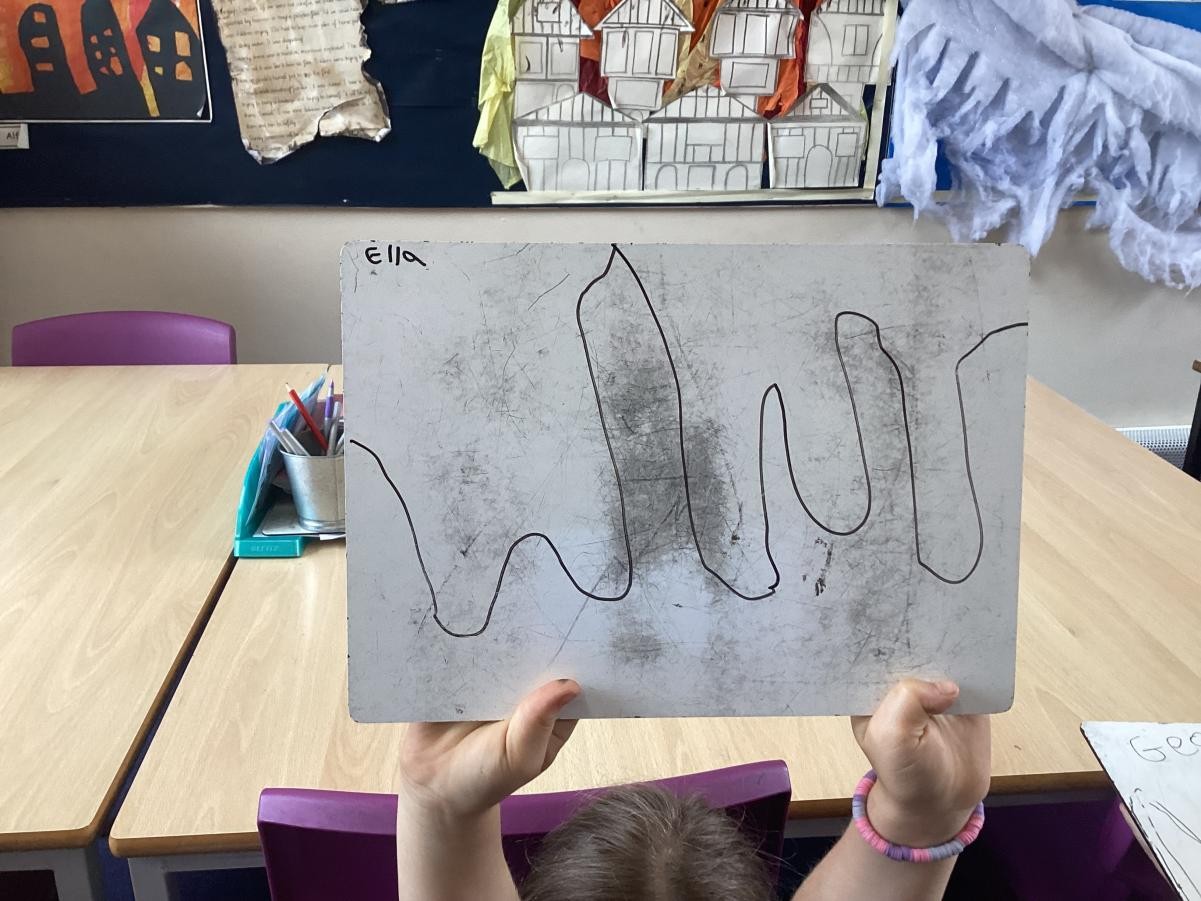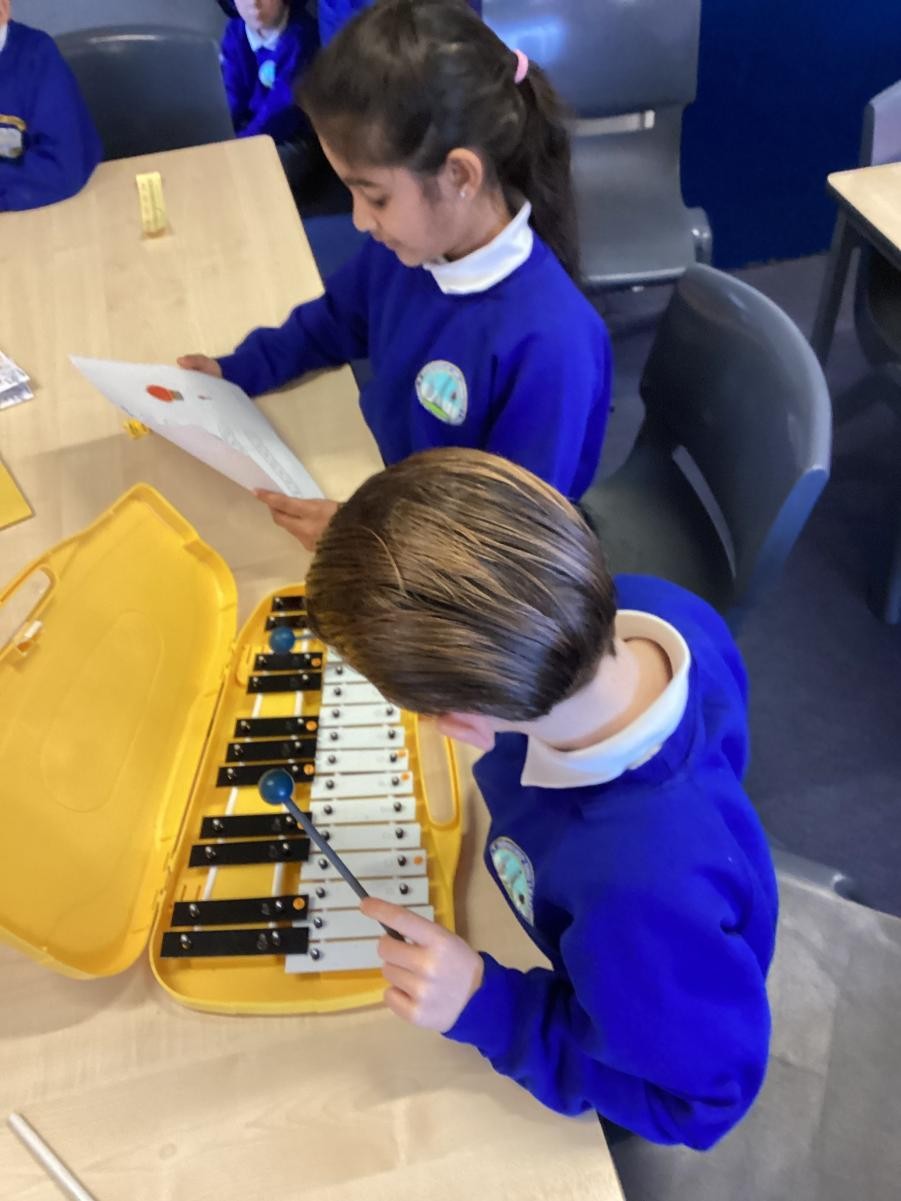Music Rationale
Intent:
At Tower Hill Primary School our core vision is that ALL children will be equipped with the skills, knowledge, understanding and empathy that will lead to them being able to make their own choices in life, successfully.
The intent of our Music curriculum is to teach children to perform, listen and compose music. They will also be taught to use and apply musical terminology to their own performances. When progressing to Key Stage Two, children will start to understand the history behind music and how it has evolved through the years.
We will provide opportunities for children to develop their confidence to perform both in school and in the wider community. All children at Tower Hill will be given the opportunity to perform as an ensemble or soloists. They will have the opportunity to develop their musicality through listening to a wide variety of music and being taught to play both tuned and untuned instruments. The children will be encouraged to explore sounds and experiment with recording their own compositions. Musical notation will be taught in a variety of ways, allowing children to share their ideas with others. At Tower Hill Primary School, we have high ambitions for all pupils, particularly disadvantaged and SEND children, and that they have the knowledge and cultural capital to succeed in life.
We believe music promotes well-being and gives children a powerful and unique form of communication that can change the way people feel, think and act. The Music curriculum will help to develop Cultural Capital through exposure to a broad range of musical styles and traditions. Children will gain a better understanding of other cultures and communities.
We strive for all to be actively engaged in their own learning, to be motivated and eager, to achieve and attain to their own full potential in Music
Implementation:
At Tower Hill, our Music Curriculum is coherently planned and sequenced towards all children (including those classified Disadvantaged or with SEND) to develop and build sufficient knowledge and skills for future learning. Through Tower Hill’s Music Curriculum, children will develop the key skills and knowledge for each unit. These skills will build on sequentially from each other from Early Years to KSI and KSII for the specific outcomes expected. Children should see and make the connections to their learning in all areas of learning.
We break the learning of music down into four key areas: listening, composing, performing and the inter-related dimensions of music.
Early Years Foundation Stage:
The Early Learning Goal for exploring Media and Materials states: Children sing songs, make music and dance, and experiment with ways of changing them. This is used alongside the Early Learning Goal for Being Imaginative which states: Children use what they have learnt about media and materials in original ways, thinking about uses and purposes. They represent their own ideas, thoughts and feelings through design and technology, art, music, dance, role play and stories.
In EYFS the children are given a variety of opportunities to sing about their learning as well as the opportunity to compose their own music by experimenting with objects, manipulating them to make sounds in different ways. This is evident in the unit Celebration music which introduces children to the music curriculum. This progresses through the music and movement unit where the children build their performance skills by showing two songs to an audience. By the summer term, the children are incorporating tuned and un-tuned percussion into a big band performance.
Key Stage I:
The National Curriculum states that in KSI: Pupils should be taught to use their voices expressively and creatively by singing songs, play tuned and untuned instruments, listen with concentration and experiment with create, select and combine sounds to create their own compositions.
- In the project of ‘Musical vocabulary – under the sea, Year 1 are introduced to musical terminology which supports creating their own under the sea composition.
- Year 1 also use their bodies as instruments to respond to a piece of classical music in their topic ‘ classical music, dynamics and tempo – animals’
- Finally, in the Summer term, Year 1 will explore what life is like ‘by the sea’. They can build on previous knowledge to make links between music, sounds and environments and use percussion, vocal and body sounds to represent a calm or stormy sea.
- In Year 2, the children start by learning a traditional Ghanian call and response song and also look at musical notation on a stave for the first time. The children then build on this and create their own call and response patterns in the unit ‘West African call and response – animals’
- By the end of the year, the children in Year 2 create sounds to represent three contrasting landscapes: seaside, countryside and city.
- The children in Year 2 will also get the opportunity to play a range of instruments with a teacher from Hampshire Music Service. The children learn what the name of different notes is as well as how to play the instrument correctly. After practising, the children can play along with a song, using melodic dictation.
The National Curriculum states that in KSII: Pupils should be taught to sing and play musically with increasing confidence and control. They should develop an understanding of musical composition, organising and manipulating ideas with musical structures and reproducing sounds from aural memory.
- Through the unit Vikings in Year 3, children are given the opportunity to develop their singing skills by creating their own motif and performing a Viking battle song. This progresses as the children move into a ballad unit in the Spring term. Finally, in the Summer, the children can show what they have learnt through a traditional instruments and improvisations unit where the children perform their own Anilee Vaa
- Year 4 continues to progress the skills of listening, composing and performing through their Rock and Roll unit. The children in KSII are now learning more in depth about music history and how this has effected the types of music we hear today. The inter-related dimensions of music also contribute to the topics such as rivers where the children can create their own ostinato to represent different parts of a rivers journey.
- As the children move into Upper Key Stage 2, they continue their composing and historical journey by learning how to play a chord and the blues scale. Year 5 also get the opportunity to compose their own musical theatre song with props, costumes and choreography.
- In Year 6, the children’s knowledge of musical notation as well as different scales and rhythms will be challenged and progressed in the unit advanced rhythms. In pairs, the children will create their own score and clap the rhythm. An important part of music is being able to listen and respond to feedback which can be applied to this particular unit as the children work in group of four. In the Spring term, the children compose a piece of film music to be played over the top of a scene from Wallace and Gromit. Finally, the children will put their knowledge of listening, composing, performing, music history and the inter-related dimensions of music to the test by composing their own leavers songs.
Impact:
In Music, we assess the impact of the curriculum on our learners in a number of ways. Firstly, we ensure that our children’s skills and knowledge, linking directly to the National Curriculum, is developed and built on throughout Early Years, KSI and KSII. Children should be able to talk about and discuss their learning, linking it to their prior learning. For this to happen, each music lesson should follow the ‘let’s remember, let’s recap, let’s learn’ structure as seen across the school. Following each unit, children are given the time and guidance needed to perform their final piece and start to critique this. Teachers will use end point, assessment tasks and whole class feedback sheets to assess the children’s progress across each unit of music.
Golden Thread:
In our music lessons at Tower Hill, it is imperative that we continue to build and develop children’s aspirations for life. We aim to achieve this through introducing all children to careers, each one being linked to a unit of work. Throughout each unit, the career chosen will be drip-fed into lessons as well as an understanding of what this job is and how music supports that. This will provide children with the knowledge of careers that they may not have come across in their lives thus far. Additionally, we aim to provide them with more options and understanding in an ever growing world. Where possible, we encourage and seek out opportunities for children to experience elements of these industries from professionals or individuals in the local community, furthering their education within the industry. Through doing this, we hope to introduce them to a wealth of opportunities through live professional performances and opportunities to perform within our local community.

